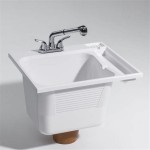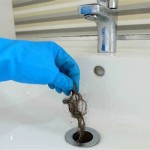Is Sink Water Safe to Drink?
The safety of drinking tap water is a concern for many people, particularly those who live in areas with older infrastructure or where water quality is questionable. While the majority of municipal water supplies in developed countries meet safety standards, there are instances where contaminants may enter the water supply and pose potential health risks.
### Sources of ContaminationContamination of sink water can occur from various sources, including:
- Old pipes: Lead pipes and fixtures, which were commonly used in older buildings, can leach lead into the water, posing health risks, especially for young children and pregnant women.
- Industrial chemicals: Industrial facilities may discharge chemicals into water sources, which can contaminate groundwater and drinking water supplies.
- Agricultural runoff: Fertilizers and pesticides used in agriculture can leach into groundwater and surface water sources, contaminating drinking water with nitrates and other chemicals. li>Microbial contaminants: Bacteria, viruses, and parasites can contaminate water sources from sewage leaks, animal waste, and stormwater runoff. ### Health Risks
- Gastrointestinal illness: Bacteria and viruses present in contaminated water can cause gastrointestinal problems such as diarrhea, vomiting, and abdominal cramps.
- Lead poisoning: Lead contamination can lead to neurological damage, particularly in children, as well as kidney damage and cardiovascular problems.
- Cancer: Some chemicals found in contaminated water have been linked to an increased risk of cancer, such as certain pesticides and industrial solvents. ### Water Treatment and Testing
- Chlorination: Chlorine is added to water to kill bacteria and other microorganisms.
- Filtration: Water is passed through filters to remove particles, including sediment, suspended solids, and microorganisms.
- Coagulation and flocculation: Chemicals are added to water to cause suspended solids to clump together, making them easier to remove by filtration.
- Activated carbon filters: These filters remove a wide range of contaminants, including chlorine, pesticides, and heavy metals.
- Reverse osmosis systems: These systems use a semi-permeable membrane to remove a broad spectrum of contaminants, including dissolved solids, bacteria, and viruses.
- UV water purifiers: These purifiers use ultraviolet light to kill bacteria and viruses.
- Moving into a new home, especially one with older plumbing.
- Renovating or repairing plumbing in an existing home.
- Experiencing a change in water taste, odor, or appearance.
- Suspecting contamination due to a flood or other environmental event.
Drinking contaminated water can lead to various health issues, including:
Municipal water treatment facilities employ various methods to remove contaminants from source water and ensure its safety for consumption. These methods include:
Regular water quality testing is conducted by municipal authorities to monitor for contaminants and ensure the safety of tap water. The results of these tests are typically made available to the public through online dashboards or annual water quality reports.
### Home Water Treatment OptionsIn areas where tap water quality is a concern or where access to safe drinking water is limited, home water treatment options can provide additional protection:
Regular water testing is recommended in certain situations, such as:
The safety of sink water depends on the quality of the source water and the effectiveness of water treatment and testing. While most municipal water supplies meet safety standards, contamination can occur due to various factors. Home water treatment options can provide additional protection in areas where tap water quality is a concern. Regular water testing and awareness of potential contamination sources are essential for ensuring the safety of drinking water.

Can You Drink Sink Water Flowater

Is It Safe To Drink Bathroom Sink Water

Should You Drink Water Straight From The Tap Conscious Living Tv
How To Tell If Water Is Safe Drink Or Contaminated Business Insider

Drinking Tap Water In Singapore Aox

Is Tap Water Safe To Drink In The U S Canada And Mexico

Bathroom Sink Water Is Safe To Drink Health Tips George

Sink Water Safe To Drink Cinosural International School
How To Tell If Water Is Safe Drink Or Contaminated Business Insider

Is It Safe To Drink Tap Water From The Bathroom Professor







